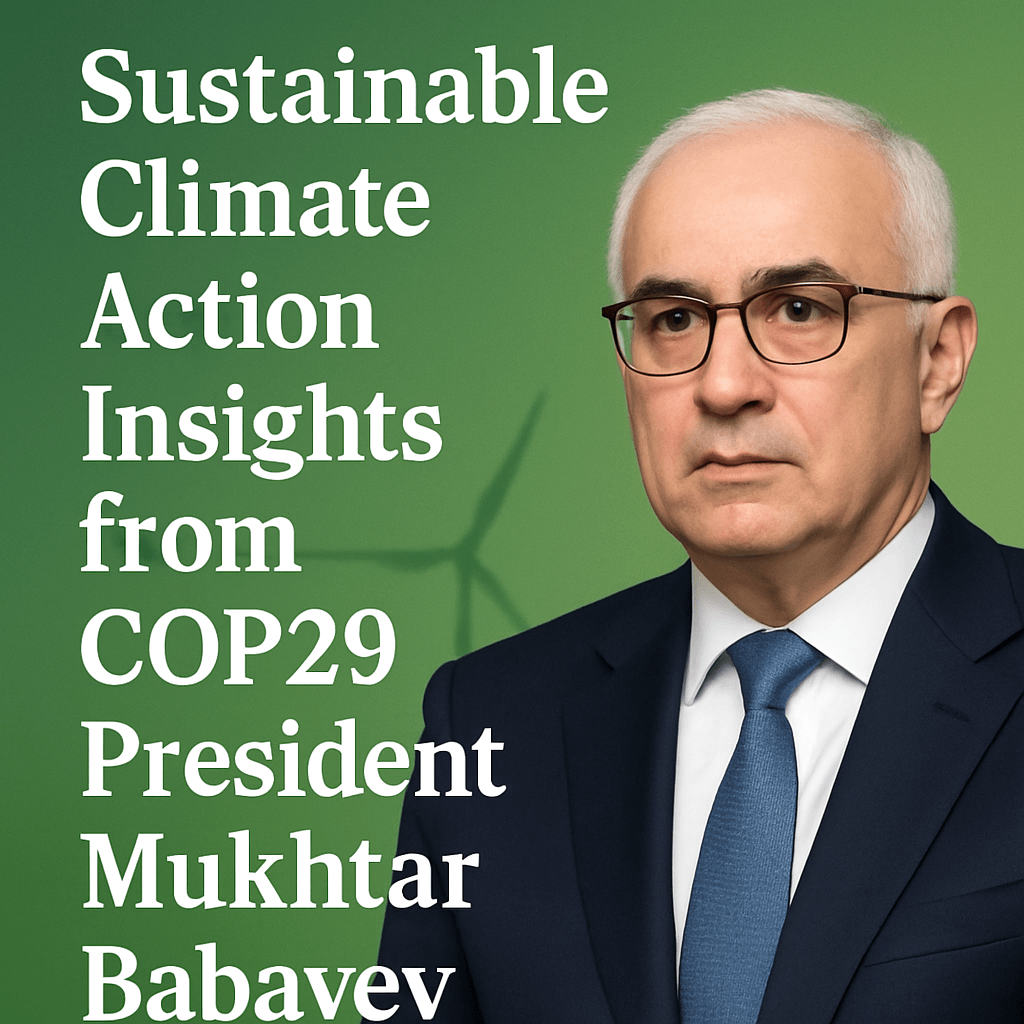Sustainable Climate Action Insights from COP29 President Mukhtar Babayev

In a recent episode of Energy Frontiers, Mukhtar Babayev, President of COP29, conveyed an urgent call for decisive climate action and accountability from world leaders as the global community gears up for COP30, scheduled to take place in Brazil. During his interview with Euronews, Babayev underscored the necessity of translating pledges into actionable investments and measurable outcomes.
Key Outcomes from COP29
The COP29 conference in Baku marked a critical juncture in the ongoing fight against climate change. One of the standout outcomes was the establishment of a $300 billion climate finance target, aimed at mobilizing funds to support vulnerable nations as they transition towards sustainable energy solutions. This significant financial commitment represents a shift towards fulfilling the funding needs identified during previous climate summits.
Article 6 Framework and Carbon Markets
Another notable point of progress from COP29 was advancements in the implementation of Article 6 of the Paris Agreement. This section addresses mechanisms for cooperative approaches to achieving nationally determined contributions (NDCs). It allows countries to engage in carbon trading, fostering a market-oriented approach to emissions reductions. By creating a transparent and credible carbon market, the COP29 framework aims to enhance investment in green technologies and incentivize emissions cuts on a global scale.
The Need for Immediate Action
Babayev emphasized that the current trajectory of rising global emissions necessitates immediate action, stating, “2025 must be a turning point.” This assertion is underpinned by the reality that developed nations have historically contributed disproportionately to global emissions and, in turn, have a moral obligation to deliver real support to developing countries that lack the capacities to address climate challenges independently. As per the latest reports from the World Meteorological Organization, global greenhouse gas concentrations reached record levels in 2022, underscoring the urgency for substantial intervention.
Global Climate Leadership and Fragmentation
As climate leadership remains fragmented, the disparities between pledged goals and actual progress create a critical gap. Experts have noted that although many countries have set ambitious targets, the inconsistency in implementation leads to skepticism regarding the overall effectiveness of global climate agreements. The lack of decisive action risks undermining trust between nations and eroding the collaborative efforts that are vital for addressing climate change.
Future Prospects and Recommendations for COP30
Heading into COP30, Babayev and climate analysts recommend several key strategies to enhance global climate action:
- Strengthening Financial Commitments: Countries must reaffirm and amplify their financial commitments to developing countries to ensure they have the necessary resources to combat climate change effectively.
- Implementation of Technological Solutions: Increased investment in renewable technologies, such as solar and wind energy, can help accelerate the transition away from fossil fuels.
- International Collaboration: Enhanced collaboration between private and public sectors can facilitate innovation and expedite the development of sustainable solutions.
The Role of Stakeholders
The role of stakeholders, including non-governmental organizations (NGOs), corporate partners, and citizen groups, is paramount in advocating for and implementing climate solutions. Integrating diverse perspectives can lead to more holistic and effective climate policies that reflect the needs and capacities of different nations and communities.
“It’s time for developed countries to deliver real support to the developing world,” Babayev concluded, reinforcing the notion that collaborative, equitable approaches are crucial for addressing global climate challenges.